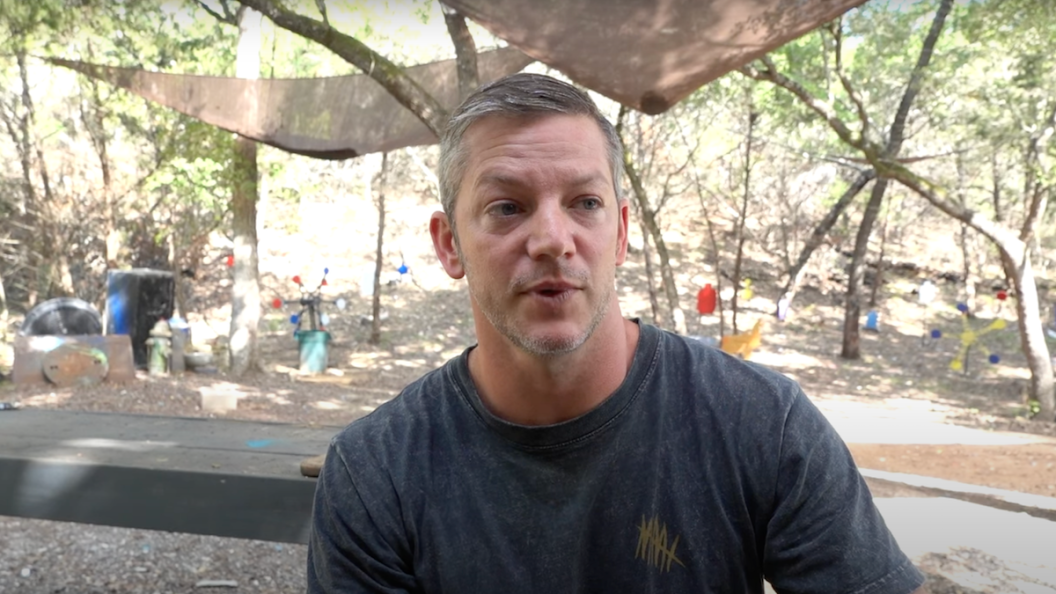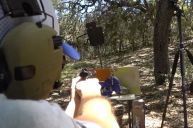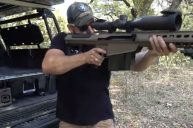The attempted assassination of Donald Trump over the weekend left the presidential candidate with minor injuries, one person dead, and two critically injured. While reporters and authorities continue to investigate the gunman's motive, some saw connections to gun culture, namely the gun-influencing channel Demolition Ranch.
Images of the gunman's lifeless body show him wearing a t-shirt with branding from the popular YouTube channel with more than 11 million subscribers. As a result, some wondered how the channel influenced the shooter.
In response, Matt Carriker, the creator and host of Demolition Ranch, posted a video on Monday addressing the concern head-on. He explained that he and his team were both "shocked and confused" to see the imagery. "That sucked to see that," he said. "Yeah, that was rough."
Carriker explained that he doesn't discuss politics or push a political agenda on his channel. Unlike other gun influencers, his videos focus primarily on firearms, shooting, explosions, and skits. "This channel was never meant to incite violence or hate. It never has. It isn't. And it never will be a channel that does that," Carriker said. He added that he doesn't condone violence.
In response to the multiple media requests he's received, he explained that he's never met or interacted with the gunman. "No. He bought a shirt online and unfortunately wore it that day," he said. And added: "We don't vet the people who buy our shirts. Obviously, it'd be impossible to — just like Nike doesn't vet who buys their shoes. I wish I could."
Why gun influencers like Demolition Ranch matter
The term gun influencer (or "gunfluencer") is shorthand for a social media influencer who discusses gun. While channels like Demolition Ranch post entertainment content, others promote political agendas or skills. No matter the theme, though, the gun industry relies heavily on gun influencers to promote and market firearms online.
Experts say the reason is gun companies have limited options for advertising. While they can advertise in gun magazines, they can't buy ads on Google or social media platforms, and few TV networks will air gun commercials. Instead, the companies rely on influencers to highlight their products on hobbyist channels.
What's more, gun influencers are often seen as more than hobbyists. "Advertising is sort of a mirror or a reflection of social values, of things that people want to do and feel and experience. And advertising directs or gently influences the ways that people think and feel about products," said Aimee Huff, a business professor at Oregon State University who wrote a study on gun advertising, in an interview with OPB.




